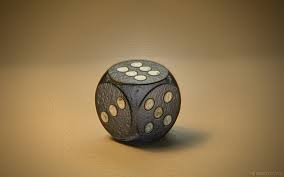object
英 [ˈɒb.dʒɪkt]
美 [ˈɑːb.dʒɪkt]
- n. 目标;物体;客体;宾语
- vt. 提出…作为反对的理由
- vi. 反对;拒绝
使用频率:

记忆方法
将“object”记忆为“ob-jec-t”,联想记忆法可以这样使用:想象一个“O”形状的物体,它是一个“objective”目标,你想要“object”(反对)某些事情,因为它违背了你的目标或原则。这样可以帮助你记住这个单词的含义和使用场景。
以上内容由AI生成, 仅供参考和借鉴
中文词源
object 目标,物体,反对
ob-,向前,朝向,相对,对着的,-ject,扔,投掷,放置,词源同project.即放置在前面的目标或物体。也用于指对着扔的,引申词义反对。
英语词源
- object
-
object: Object the noun [14] and object the verb [15] have diverged considerably over the centuries, but they come from the same ultimate source: Latin obicere. This was a compound verb formed from the prefix ob- ‘towards’ and jacere ‘throw’ (source of English ejaculate, inject, subject, etc), and hence originally meant literally ‘throw towards’, but by classical times it had been extended metaphorically to ‘place a hindrance in the way of, oppose’.
This was the strand of the word’s meaning taken up by English in the verb object, and also originally in the noun (‘how Christ answered to objects [that is, objections] of false Jews’, John Wycliffe 1380). The standard present-day meaning of the noun, however, comes from a post-classical meaning of Latin objectum (the noun formed from the past participle of obicere): ‘something put in someone’s way so that it can be seen’, hence a ‘visible object’.
=> ejaculate, inject, jet, subject - object (n.)
- late 14c., "tangible thing, something perceived or presented to the senses," from Medieval Latin objectum "thing put before" (the mind or sight), noun use of neuter of Latin obiectus "lying before, opposite" (as a noun in classical Latin, "charges, accusations"), past participle of obicere "to present, oppose, cast in the way of," from ob "against" (see ob-) + iacere "to throw" (see jet (v.)). Sense of "thing aimed at" is late 14c. No object "not a thing regarded as important" is from 1782. As an adjective, "presented to the senses," from late 14c. Object lesson "instruction conveyed by examination of a material object" is from 1831.
- object (v.)
- c. 1400, "to bring forward in opposition," from Old French objecter and directly from Latin obiectus, past participle of obiectare "to cite as grounds for disapproval, set against, oppose," literally "to put or throw before or against," frequentative of obicere (see object (n.)). Related: Objected; objecting.
权威例句
- 1. He thought of the baby almost as an inanimate object.
- 他认为婴儿几乎就是毫无生命的物体。
- 2. He made it his object in life to find the island.
- 他把找到那座岛屿当成自己的人生目标。
- 3. My object was to publish a scholarly work on Peter Mourne.
- 我的目标是出版一本关于彼得·莫恩的学术著作。
- 4. The object has no real value, materially or emotionally.
- 无论从物质还是情感上说,这个东西都一无是处。
- 5. She knew that she was an object of pity among her friends.
- 她知道自己是朋友们同情的对象。
